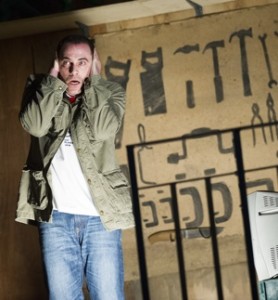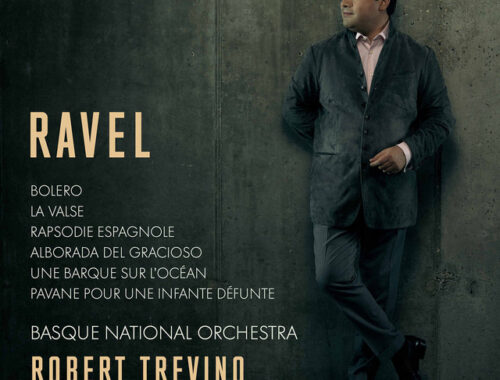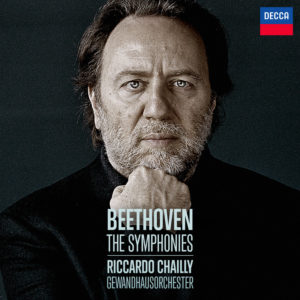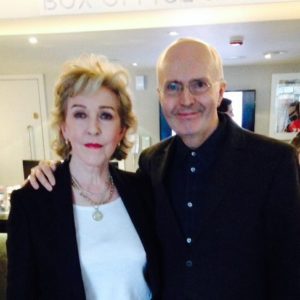“Wozzeck”, English National Opera, London Coliseum (Review)
 If you should take your seats prematurely in the London Coliseum you’ll find yourself confronted with a group of serving British soldiers. You’ll shift a little uneasily under their gaze. There they are, staring, smoking, loitering; there we are, on a visit to the opera. There’s a disconnect. Among those soldiers is Wozzeck (Leigh Melrose), the eponymous anti-hero of Alban Berg’s operatic masterpiece. And since it’s not too often that stagings of the opera actually address the issue of his profession there is an added immediacy. This is the here and now of a Britain effectively still caught up in a war where soldiers like Wozzeck come home irrevocably damaged – and the director Carrie Cracknell wants us right inside the man’s head. It isn’t pretty.
If you should take your seats prematurely in the London Coliseum you’ll find yourself confronted with a group of serving British soldiers. You’ll shift a little uneasily under their gaze. There they are, staring, smoking, loitering; there we are, on a visit to the opera. There’s a disconnect. Among those soldiers is Wozzeck (Leigh Melrose), the eponymous anti-hero of Alban Berg’s operatic masterpiece. And since it’s not too often that stagings of the opera actually address the issue of his profession there is an added immediacy. This is the here and now of a Britain effectively still caught up in a war where soldiers like Wozzeck come home irrevocably damaged – and the director Carrie Cracknell wants us right inside the man’s head. It isn’t pretty.
This is recession Britain – another twist – and Tom Scutt’s towering tenement-like cross-section of squalid rooms is an ugly reminder of that irrefutable fact. At the bottom of the tower block, the pub; at the top, closest to heaven, the latrines. And as the coffins come home traditionally draped in the Union flag young women like Wozzeck’s mistress, the mother of his son, Marie (Sara Jakubiak) pay their lustful respects to the living, not the quick and the dead. Soldiers are sexy while they’re still breathing. In the back room of the pub, the Doctor uses the coffin of one departed hero to apportion the cocaine that will screw with the heads of those who do make it back. To add terrible irony to injury the drugs are hidden in kids toys – little green dinosaurs like the one Wozzeck’s son plays with.
The veteran Wagnerian, James Morris, plays the Doctor with thunderous vocal and physical authority – and what an inspiration, albeit a logical one, that he should be “the chemist” who dispenses the character-adjusting medications whilst using the real problem cases, like Wozzeck, to experiment with the untried and untested. His buddy, the Captain – another scarily committed and full-on performance from Tom Randle – is a showcase for his drug-induced character-rebuilding, his body a war zone of angry tattoos, his crazed mind characterised in manic vocal-chord-stretching falsettos.
Wozzeck himself is well on the way to the point of no return and his best mate Andres (Adrian Dwyer), an amputee playing video war games in his fortified cell, shares his night terrors 24/7 as we see what only they see – the innocent victims of war, the Afghan and Iraqi children. Even Wozzeck’s own son is given to hide under the table from his own father, frightened of what he might see.
Of course, the real hallucinations in this amazing piece are conjured in Berg’s orchestra and Edward Gardner and the ENO Orchestra on stunning form lay them bare with paradoxical lucidity. Such weird and wonderful and wholly unlikely instrumental combinations convey the strange and skewed logic of damaged minds. And just as Cracknell’s unflinching reality chimes so starkly with things like the ferocious crescendos on unison B which mark the murder of Marie so too the great and cathartic D minor interlude just before the close seems to carry the grief of a nation.
It’s hard watching Leigh Melrose as Wozzeck, a broken man shuffling from one abuse to another, fixated only on providing for Marie and his son in troubled times. That’s the other thing this opera is about – poverty and what it does to people. And the way Melrose conveys the hopelessness of uncontrollable torment through the huge dynamic range of his vocal performance is both thrilling and deeply upsetting. It may be the performance of his life.
And for once we understand Marie for whom adultery is refuge, a pair of earrings, and new red shoes. The Drum Major (Bryan Register) gives those out like sweets. Sara Jakubiak is fearless in the role, searing in her repentance. And with Berg’s reverse conceit that when the emotional stakes are too high singing turns to plain speaking she and everyone else nails Richard Stokes’ excellent translation. For once Wozzeck belongs in English.
So there will be blood – rivers of it – and the slaughter at home will become inseparable in Wozzeck’s mind from the slaughter abroad. Musically this is ENO’s finest hour; dramatically it will break your heart. Is there more?
You May Also Like

GRAMOPHONE Review: Ravel Orchestral Works – Basque National Orchestra/Trevino
27/07/2021
A Conversation With RICCARDO CHAILLY
02/09/2011
One Comment
tina maxwell
I couldn’t have out it better myself! A fantastic analysis of an amazing evening. thanks!